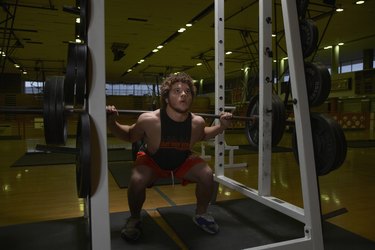
As one of the most effective strength-building, lower-body exercise, the squat is a staple exercise for athletes, bodybuilders and power lifters. The reason the squat gets so much attention is because of the high amount of muscle fiber it recruits. Because you target more than one muscle at a time, the squat is known as a compound exercise.
Quadriceps
Video of the Day
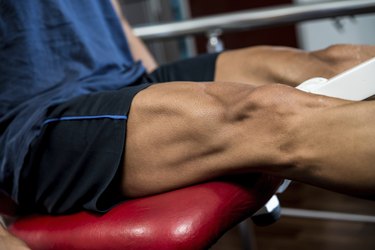
The quadriceps are on the front of the thighs. They extend the knees and flex the hips. Knee extension takes place when you straighten your lower leg. Hip flexion takes place when you decrease the angle between your thigh and stomach. When you lower yourself down during a squat, you perform hip flexion, and when you stand up, you perform knee extension, so the quads get worked throughout the movement. The four parts of the quadriceps are the rectus femoris, vastus lateralis, vastus medialis and vastus intermedius.
Video of the Day
Glutes
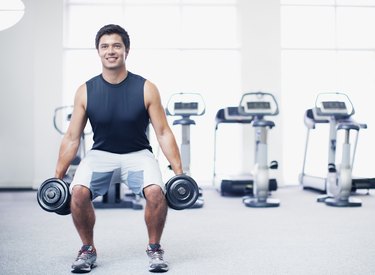
The glutes are commonly referred to as the buttocks. It contains three parts -- the gluteus maximus, medius and minimus. All these segments get worked with a squat. The main function of the glutes is to extend the hips. This motion takes place when you move your thigh backward. During a squat, you perform hip extension when you rise to a standing position
Adductors
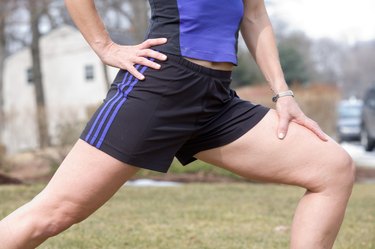
The adductor magnus, longus, brevis, and gracilis are found on the inside of the thighs. Collectively, these muscles are known as the adductors and their main function is to move the thigh inward. The basic squat works these muscles, but they get more emphasis when you perform a sumo, or plie, squat. This is performed with your legs in a wide stance and toes pointing out at an angle.
Calves
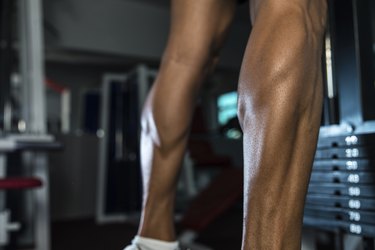
The calves consist of the gastrocnemius and soleus. The gastroc has a medial and lateral head which you can easily see right below the knee on the back of the leg. The soleus is in front of the gastroc and both muscles run down to the Achilles tendon. The main function of these muscles is plantar flexion, which takes place when you point your toes downward. When you perform a squat, the calves are recruited isometrically to keep the lower legs stable. Isometric contractions are held for an extended period of time.
Hamstrings
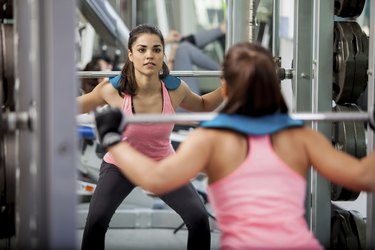
The hamstrings consist of the biceps femoris, semitendinosus and semimembranosus. These are located on the back of the thighs and they function to flex the knee and extend the hip. Knee flexion takes place when you bend your knee and move your lower leg backward. During a squat, you perform knee flexion as you lower your butt toward the floor. As you rise, you also work your hamstrings because you are doing hip extension.
Hip Flexors
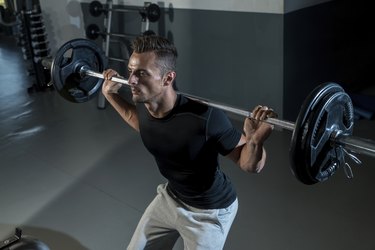
The hip flexors are small muscles that run over the hip bones toward the thighs. As the name implies, they function to flex the hip. In similar fashion to the quads, they get worked when you move your thigh toward your body.
Abs
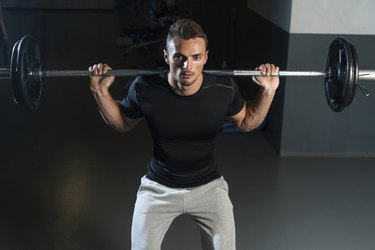
The abdominals consist of the rectus abdominis and obliques, which are on the sides of the stomach. The entire abdominal area gets activated during a squat to generate power and keep the body stable.